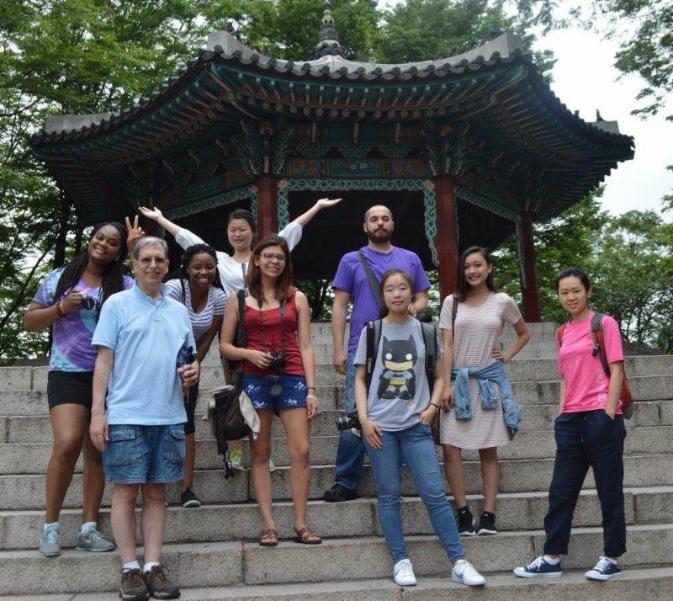|
Journalism Without Walls Captures Korea
The Journalism Without Walls program is known for defying expectations of the normal study abroad experience. This was especially true for the 2016 summer trip to Korea. On the most recent journey, led by Professor Charles Haddad, students from the School of Journalism experienced the world through the eyes of Korean refugees, business moguls and pop culture icons. Students stayed on campus at Dongguk University located in Seoul, the country’s capital and major epicenter of culture, and took a day trip to the Demilitarized Zone (DMZ) between North and South Korea. Picture: Students participating in the Journalism Without Walls in Korea Since 2009, the program’s founding year, over 100 alumni have participated. The program has taken students on journalistic adventures across the world, including India, Cuba, China, Russia and Turkey. Korea was the next and most logical destination, according to Professor Haddad. Journalism Without Walls requires a location that is “newsworthy, important and open. Korea had all those elements,” Professor Haddad noted. “We said let’s experiment and try Korea. It turned out to be a smashing success.” The professor was stunned at how accommodating the citizens were on the trip compared to countries visited in the past. “They spoke very openly to us and answered every question,” Professor Haddad said. The most memorable opportunity brought student journalists together with North Korean refugees. “A girl named Diana is hoping to attend Stony Brook in the future,” journalism student Justine Josue said. Justine began making sketches with Diana in an attempt to break the language barrier. Together, the girls compiled a list of things to do in New York City if Diana decides to attend college in New York. Talking with the refugees and discovering their similarities and differences was a priceless part of the experience. Professor Haddad stressed that embracing cultural parallels and distinctions and accepting a different world perspective is key for succeeding in the workplace. During their three weeks in Korea, the students learned how to further develop their skills in reporting, publishing and producing sophisticated multimedia journalism. For journalism majors, the experience in Korea is atypical, but proves its value in the industry and in life. “The unique thing about the School of Journalism’s study abroad program is that it is not a classroom setting,” said Justine. The Journalism Without Walls program will run again in Summer 2017; the program location will be determined in early 2017. Interested students should contact International Academic Programs for more information. |

